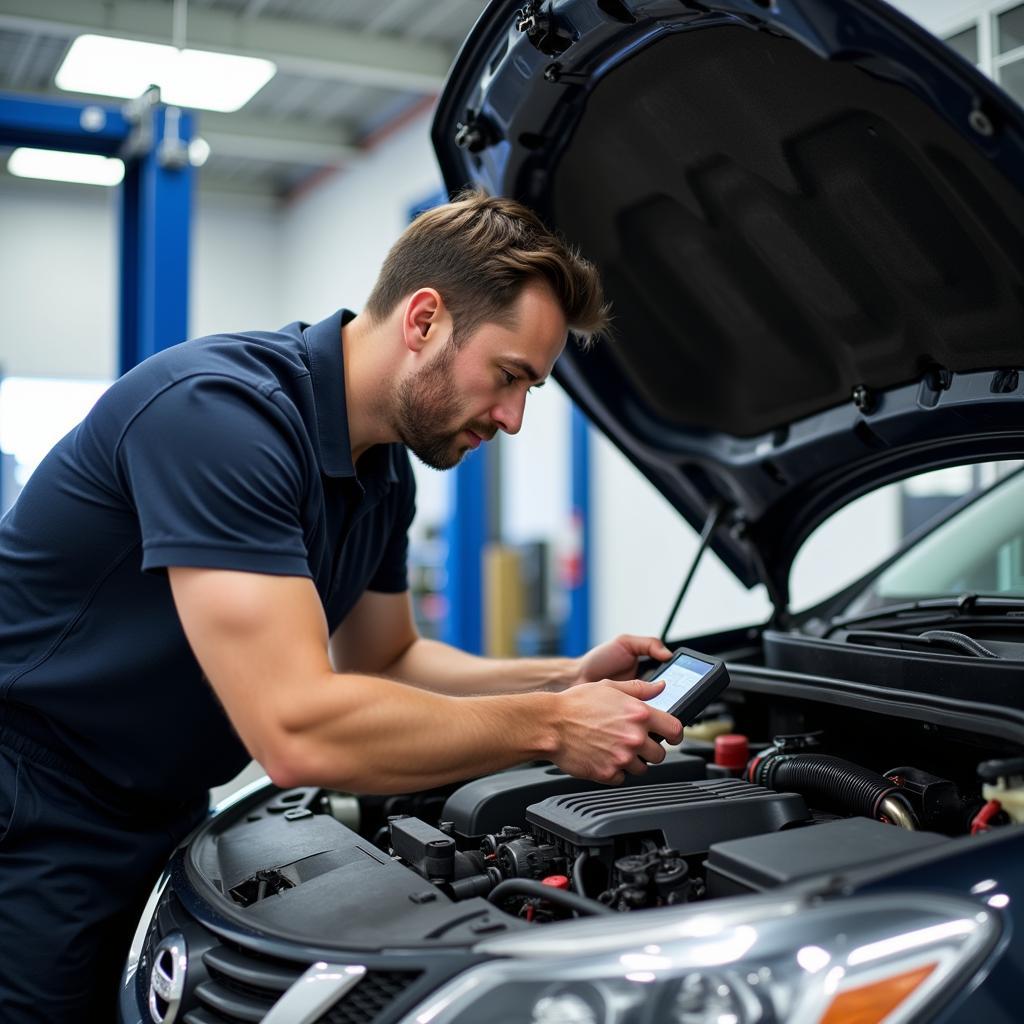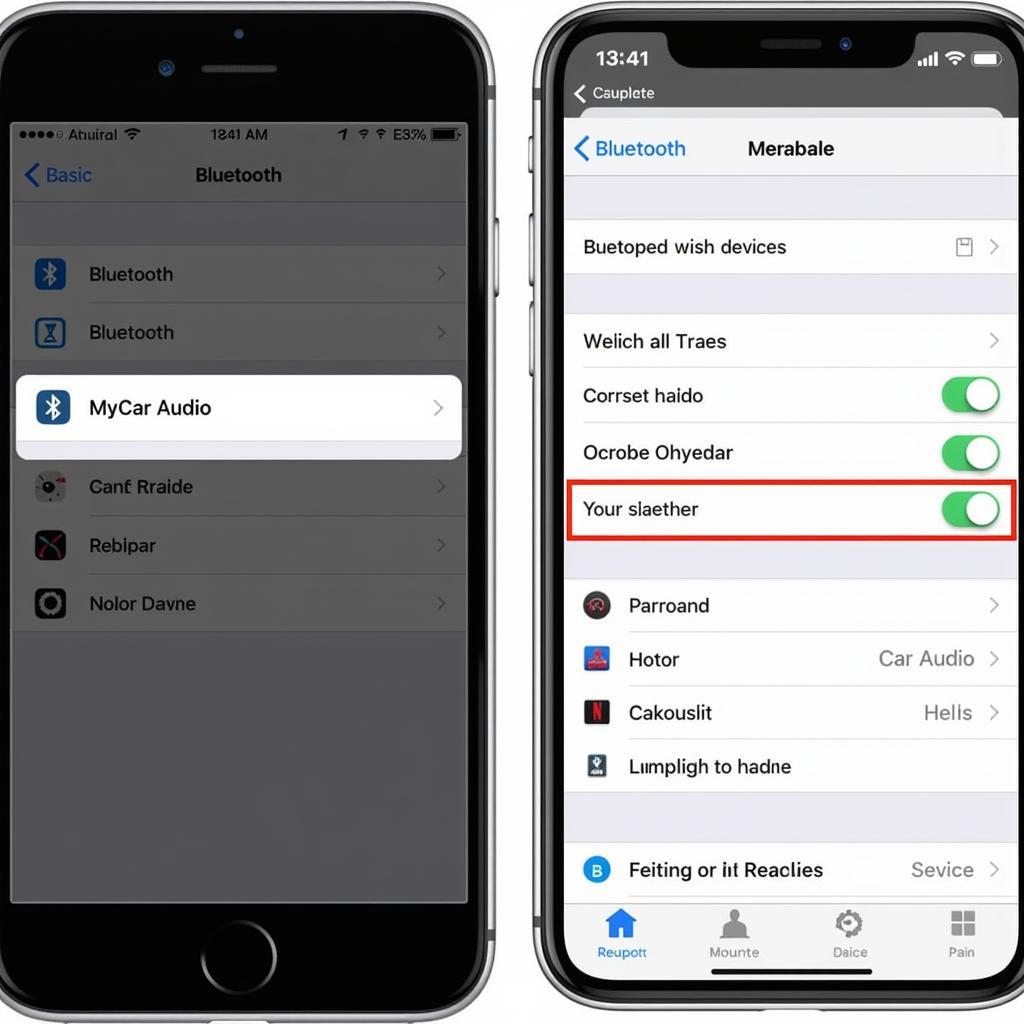A new battery should mean a reliably starting car, right? So, what happens when your car won’t start but battery is new? This frustrating scenario is more common than you think. Don’t panic. This article provides a comprehensive guide to diagnosing and fixing the problem, even if you’re not a car expert.
Common Reasons Your Car Won’t Start With a New Battery
While a dead battery is the usual suspect, a new battery not starting the car points to other potential culprits. These range from simple fixes to more complex issues. Let’s explore some of the most frequent causes:
- Faulty Alternator: The alternator recharges the battery while the engine runs. A malfunctioning alternator can’t recharge the battery, leaving you stranded even with a brand new battery.
- Starter Issues: The starter motor cranks the engine to start it. A bad starter can prevent the engine from turning over even with sufficient battery power.
- Corroded Connections: Corrosion on battery terminals or cables prevents the flow of electricity, rendering the new battery ineffective.
- Wiring Problems: Damaged or loose wiring anywhere in the starting circuit can disrupt the power supply to the starter, preventing the car from starting.
- Faulty Ignition Switch: The ignition switch supplies power to the starting system. A faulty ignition switch can interrupt this process, leaving you with a car that won’t start.
- Fuel System Problems: While less likely with a new battery, a clogged fuel filter or a faulty fuel pump can prevent fuel from reaching the engine, hindering starting.
- Security System Malfunction: Modern cars have sophisticated anti-theft systems. A malfunctioning immobilizer can prevent the engine from starting, even with a new battery.
Troubleshooting Your Car’s Starting Problem
Now, let’s dive into diagnosing the problem. This step-by-step guide can help you pinpoint the issue:
- Check the Battery Connections: Inspect the battery terminals and cables for corrosion. Clean any corrosion with a wire brush and baking soda solution. Ensure the connections are tight.
- Test the Starter: Have a helper turn the key while you listen for a clicking sound from the starter. A single click might suggest a weak starter solenoid, while no click could indicate a faulty starter motor.
- Inspect the Alternator: With the engine running, use a multimeter to test the alternator’s output voltage. A reading below 13.5 volts suggests a failing alternator.
- Examine the Wiring: Visually inspect the wiring connected to the starter, alternator, and battery for any damage or loose connections.
- Check the Ignition Switch: Try starting the car with a spare key. If it starts, the problem lies with the original key’s immobilizer chip.
- Inspect the Fuel System: Listen for the fuel pump whirring when you turn the key to the “on” position. If you don’t hear it, the fuel pump might be faulty.
“A common mistake people make is assuming a new battery solves all starting problems. Often, it’s a different component in the starting system causing the issue,” says John Smith, a certified automotive technician with 20 years of experience.
When to Call a Professional
If you’ve followed these steps and your car still won’t start, it’s time to seek professional help. Complex electrical or fuel system problems require specialized diagnostic equipment and expertise.
wiring newer gm radio in older car can sometimes interfere with the car’s starting system if not done correctly.
Preventing Future Starting Problems
Here are some proactive steps to avoid future starting problems:
- Regularly Clean Battery Terminals: Cleaning your battery terminals every few months prevents corrosion buildup.
- Have Your Battery and Alternator Tested Annually: This helps identify potential problems before they leave you stranded.
- Address Wiring Issues Promptly: Don’t ignore any signs of damaged or loose wiring.
bluetooth car kit radio transmitter installation can be tricky, and it’s best to follow the instructions carefully to avoid electrical issues.
“Preventive maintenance is crucial for a healthy car starting system. Regular checks and timely repairs can save you time, money, and frustration in the long run,” advises Jane Doe, an automotive electrical specialist.
 Car Mechanic Checking Engine
Car Mechanic Checking Engine
Conclusion
A car that won’t start, even with a new battery, can be frustrating. However, by systematically troubleshooting the starting system, you can often identify the culprit. Remember, regular maintenance is key to preventing future starting problems. If you’re unsure about any of the steps, don’t hesitate to contact a qualified automotive technician. So the next time your car won’t start but battery is new, you’ll be armed with the knowledge to get back on the road.
bluetooth vintage car radio allows you to enjoy modern features in your classic car but ensure it doesn’t interfere with the car’s electrical system.
car radio and installation should be handled with care, especially when dealing with older car models. Improper wiring can lead to various electrical problems, including starting issues.
car radio installation hamilton provides professional car radio installation services that can prevent wiring issues and ensure proper functionality.

